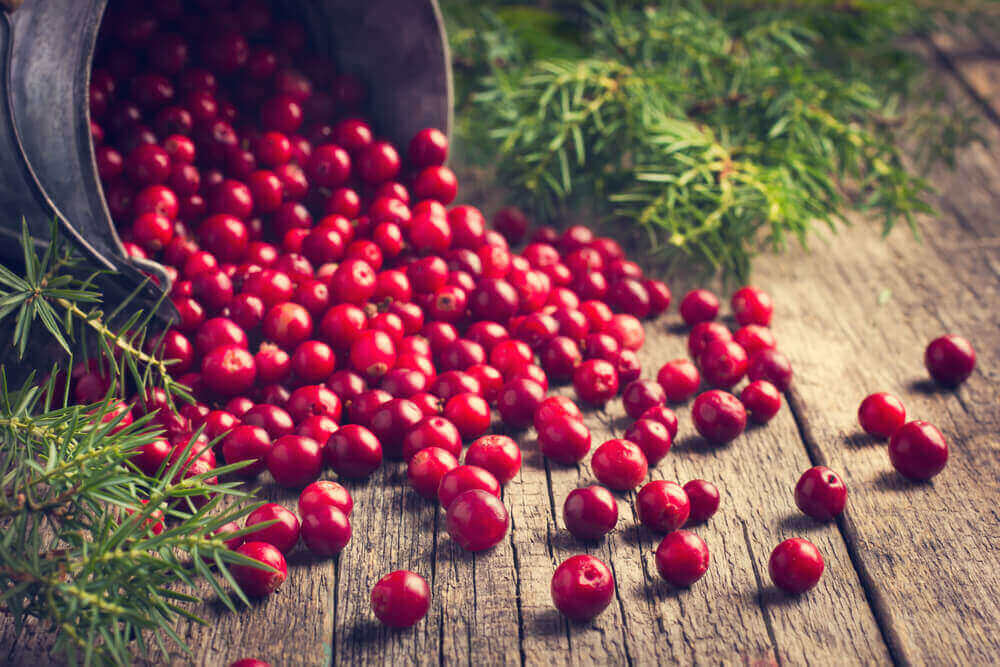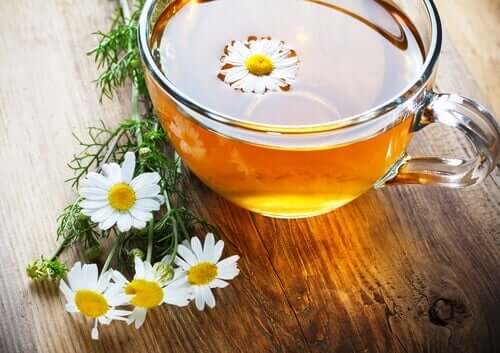Food to Help Reduce Ringing in Your Ears


Written and verified by psychologist Valeria Sabater
Ringing in the ears is a common problem. Here, we’re referring specifically to a symptom known as tinnitus. In other words, the perception of an intense buzzing or ringing that’s not in the exterior, and that can be truly bothersome.
Tinnitus, according to the American Academy of Otolaryngology, can appear and disappear in one or both ears. The origin of this problem can be a variety of factors. However, one of the most common is, without a doubt, bruxism.
It’s important to understand that ringing in your ears isn’t a sickness itself, but rather a symptom. Sometimes your inner ear may have a problem or inflammation. Other times it’s due to constant exposure to high-intensity sounds.
There are several techniques to alleviate and reduce this problem, depending on the cause. If bruxism is the issue, you may need a mouth guard to wear at night. If you have a hearing problem, your audiologist will provide you with the best treatment options.
Below, we want to offer some suggestions that you can keep in mind. While it’s that none of them offer an infallible cure, according to popular belief, certain dietary changes can generally help reduce discomfort.
Foods to help reduce ringing in your ears
There are several techniques to help reduce tinnitus. Some people find relief from “white noise,” while others try to control their sources of stress. This can also reduce problems associated with bruxism.
See also: The causes and consequences of bruxism
According to popular wisdom, foods that help reduce high blood pressure and inflammation, for example, could be useful when tinnitus is the result of these issues.

Pineapple
- Pineapple is the best anti-inflammatory fruit that you can find. This is because it contains an outstanding enzyme: bromelain.
- Bromelain has so many uses that it’s currently being studied in order to treat and reduce inflammation associated with tendonitis, sprains, minor muscle injuries, and sore throat, and ears.
- If ringing in your ears has become a daily enemy, then try eating some fresh pineapple every day.
Garlic and onions
- It’s common for grandmothers to claim that both onions and garlic possess medicinal properties that can contribute to relief from buzzing related to ear infections.
- While there are also many recipes containing honey and garlic (or onion), you can take advantage of these ingredients in a simple way. In other words, in salads or other dishes. Always in moderation, of course.
- These two foods are said to possess antibacterial and antifungal properties. Also, many claim that eating them can help strengthen the immune system.
See more: What are the Health Benefits of Garlic?
Cranberries

If you maintain a diet that’s low in sodium, this will reduce your blood pressure, and, with it, the intensity of that ringing in your ears will go down. They contribute to cardiovascular health and, especially, heart health.
Many say that if tinnitus is the result of low blood pressure or other common problems of this nature, then a diet rich in antioxidants can be helpful. So, given their antioxidant properties, cranberries can be beneficial.
You can eat cranberries on their own, in salads, in any type of drink (juices, smoothies, etc), and even in desserts.
A low-sodium diet can help reduce blood pressure, which will make ringing and buzzing in the ears disappear.
Wheat germ
You can find wheat germ in natural stores or in the specialty food section of your grocery store. Among its excellent nutrients are group B vitamins that help to regulate the nervous system.
What’s more, wheat germ contains linoleic acid, which allows your body to regulate the function of your liver and the assimilation of fats and sugars, while, at the same time, lowering blood pressure…
Adding a tablespoon of wheat germ to your smoothies or yogurt can help contribute to a balanced diet and keep tinnitus at bay.
Chamomile

Drinking a cup of chamomile tea won’t make the buzzing or ringing in your ears go away immediately. However, it can help relieve discomfort and help your body to relax.
If your tinnitus has to do with anxiety, stress, or emotional tension in general, drinking a cup of chamomile before going to bed can help you rest better at night and wake up the next day without ringing.
Chamomile has anti-inflammatory and sedative properties. Therefore, it can contribute to relief from common and mild ailments.
What if the ringing persists? See your doctor!
If rining in your ears persists and you believe you’re suffering from tinnitus, you should see your doctor. Then, once a professional has evaluated your symptoms and made a diagnosis, follow their instructions.
Once again, remember that these remedies are simply components that can help mitigate discomfort. Under no circumstances should you consider them as substitutes for any medical treatment prescribed by a doctor. Therefore, you can keep these remedies in mind, but always within the context of a healthy lifestyle.
All cited sources were thoroughly reviewed by our team to ensure their quality, reliability, currency, and validity. The bibliography of this article was considered reliable and of academic or scientific accuracy.
- Piñeiro, E. (2009). La bromelina de la piña, nuevo complemento dietético. Fundación Erosky, 2.
- Roberts, L. E., Eggermont, J. J., Caspary, D. M., Shore, S. E., Melcher, J. R., & Kaltenbach, J. A. (2010). Ringing Ears: The Neuroscience of Tinnitus. Journal of Neuroscience.
- Langguth, B. (2011). A review of tinnitus symptoms beyond ‘ringing in the ears’: a call to action. Current Medical Research and Opinion.
- Ramírez, C. (2016). Efectos Terapéuticos del Ajo (Allium Sativum). Salud y Administración, 3(8), 39–47.
- Srivastava, J. K., Shankar, E., & Gupta, S. (2010). Chamomile: A herbal medicine of the past with a bright future (review). Molecular Medicine Reports.
This text is provided for informational purposes only and does not replace consultation with a professional. If in doubt, consult your specialist.








